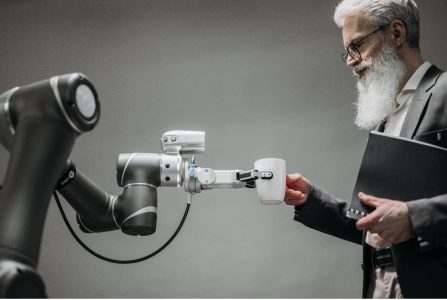The views expressed are those of the author and do not necessarily reflect the views of ASPA as an organization.
By Bill Brantley
November 3, 2023

Discussions about artificial intelligence (AI) invariably return to its impact on the job market, a realm rife with uncertainties and speculative narratives. AI’s influence dynamically unfolds, defying any fixed prognostications. Renowned entities like the World Economic Forum and McKinsey underscore AI’s paradoxical role, pointing to its power to render specific jobs obsolete while spawning new roles in emergent fields. This alteration in the employment terrain is not uniform but varies across industries and regions and is intimately tied to the rhythm of technological integration.
Importantly, what we often witness is more of a job transformation rather than total extinction. Industries like manufacturing, retail and transportation find themselves on the front lines of automation, unlike sectors such as healthcare that demand a rich human touch. This evolving landscape dictates a proactive approach to workforce education, with an urgent focus on up-skilling and re-skilling, compelling substantial investment in educational reforms to brace for the technological tide.
Navigating AI’s Double-Edged Sword in the Public Sector
The infiltration of AI into the public sector marks a significant overhaul in both employment structures and service delivery mechanisms. AI’s automation of mundane and administrative chores has ushered in a new era of efficiency and fiscal prudence, liberating human talent for tasks demanding greater strategic engagement and potentially magnifying institutional productivity.







